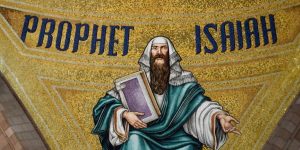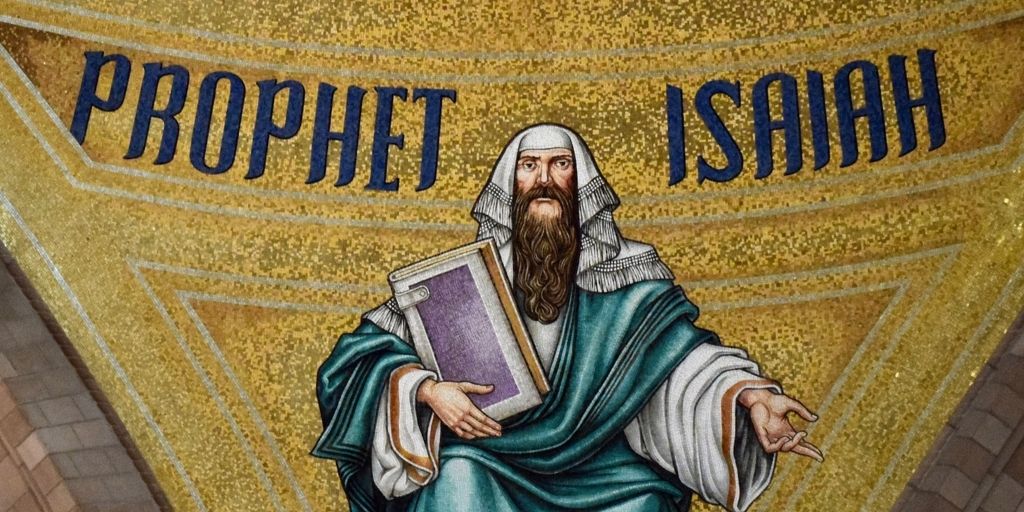
“Come now, let us set things right, says the Lord:
Though your sins be like scarlet, they may become white as snow;
Though they be red like crimson, they may become white as wool.If you are willing, and obey, you shall eat the good things of the land;
But if you refuse and resist, you shall be eaten by the sword:
for the mouth of the Lord has spoken!”— Isaiah 1:18-20
Isaiah is one of the most well-known prophets in the Bible for his prediction of the coming of the Messiah, who would redeem His people from their sins. A book of stark contrasts, Isaiah juxtaposes terrifying warnings of judgement and destruction with uplifting promises of hope and prosperity. Learn more about the prophet Isaiah in this latest installment of our Biblical Figures series.
What Do We Know about Isaiah?
The name Isaiah means “salvation of the Lord,” which is befitting for this Messianic prophet. The son of Amoz, Isaiah had a wife and two sons, whose names also described important parts of his prophetic message: Shear-Jashub (“the remnant shall return,” Isaiah 7:3) and Maher-Shalal-Hash-Baz (“spoil quickly, plunder speedily,” Isaiah 8:3). Isaiah’s writing spanned the reigns of four Judean kings during the 8th century B.C.: Uzziah, Jotham, Ahaz, and Hezekiah. The prophets Hosea and Micah also wrote during this period of great political turmoil for Judah.
The Temple Vision
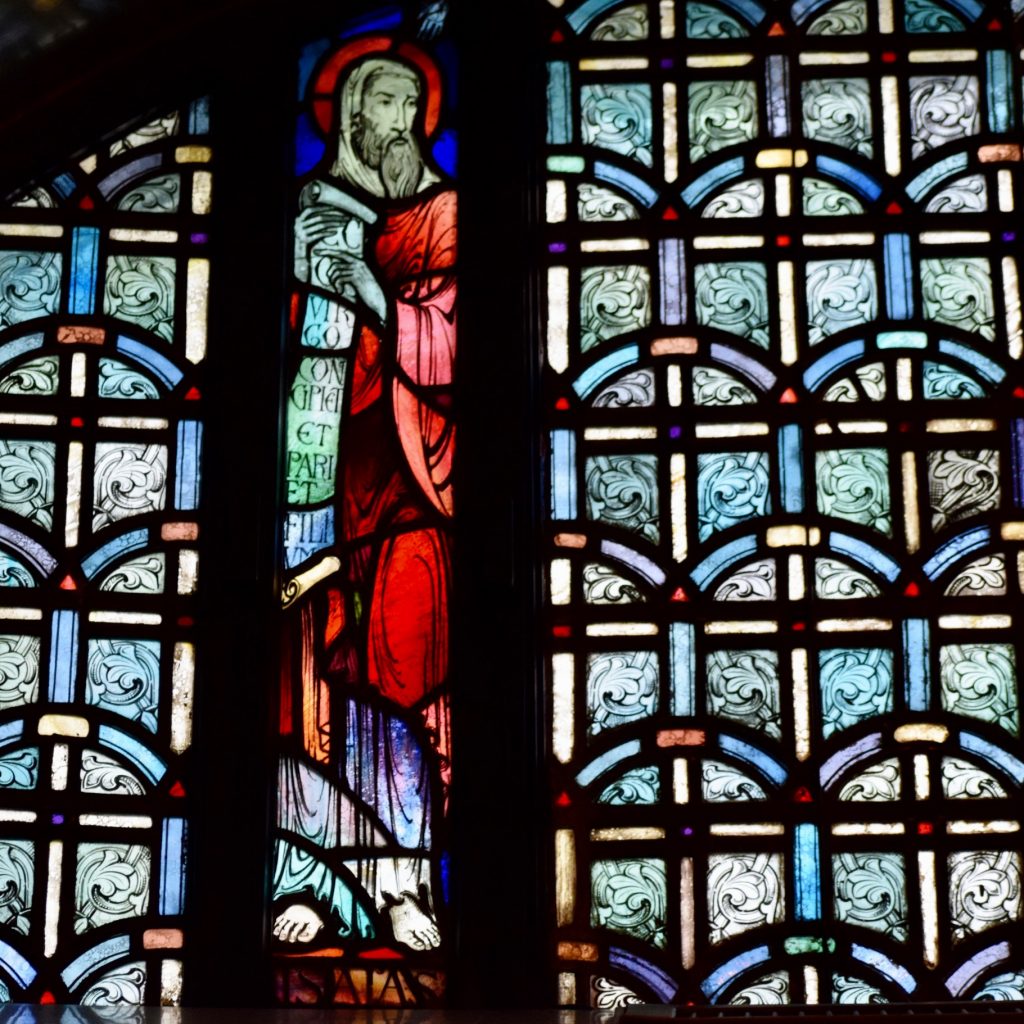
Isaiah is called by God in a very dramatic way. In chapter six, he describes how he saw God seated in the temple, surrounded by six angels, worshipping God and saying, “Holy, Holy, Holy.” Isaiah is overwhelmed by his sinfulness:
“Woe is me, I am doomed! For I am a man of unclean lips, living among a people of unclean lips, and my eyes have seen the King, the Lord of hosts!” (Isaiah 6:5)
An angel approaches Isaiah and touches his lips with a hot coal, cleansing them. Then the Lord speaks to Isaiah, calling him and giving him the message to send to his people:
“Whom shall I send? Who will go for us?” “Here I am,” I said; “send me!” (Isaiah 6:8)
God’s Judgement
Isaiah calls on God’s people to renounce their idols, warning them of coming destruction if they do not obey.
Isaiah convinces King Hezekiah to trust in God alone and not form any alliances with other nations. However, although Hezekiah does not form an alliance with Babylon, in a moment of weakness, he shows their ambassadors his extensive treasuries. Isaiah then warns that his descendants will suffer for his folly:
Then Isaiah said to Hezekiah, “Hear the word of the Lord of hosts: The time is coming when all that is in your house, everything that your ancestors have stored up until this day, shall be carried off to Babylon; nothing shall be left, says the Lord. (Isaiah 39:5-6)
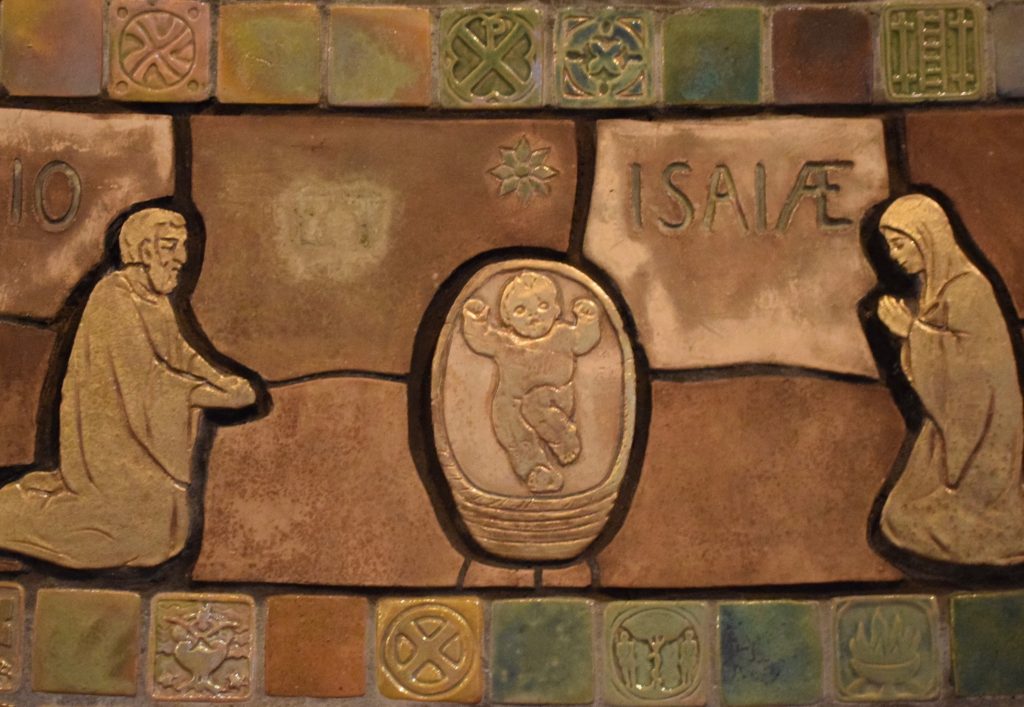
God’s Faithfulness: The Promised Messiah
But Isaiah does not leave Israel without hope; throughout the book, he speaks of a coming Redeemer. In Chapter 11, he describes Christ as the shoot that will sprout from the destroyed stump of Israel, who will guide the nation with His wisdom:
But a shoot shall sprout from the stump of Jesse,
and from his roots a bud shall blossom.
The spirit of the Lord shall rest upon him:
a spirit of wisdom and of understanding,
A spirit of counsel and of strength,
a spirit of knowledge and of fear of the Lord, (Isaiah 11:1-2)
Chapters 52 and 53 refer to the Messiah as the “suffering servant,” who will be punished to atone for our sins:
Yet it was our pain that he bore,
our sufferings he endured.
We thought of him as stricken,
struck down by God and afflicted,
But he was pierced for our sins,
crushed for our iniquity.
He bore the punishment that makes us whole,
by his wounds we were healed.
We had all gone astray like sheep,
all following our own way;
But the Lord laid upon him
the guilt of us all. (Isaiah 53:4-6)
The Messiah brings restoration to God’s people, freeing them from their chains:
The spirit of the Lord God is upon me,
because the Lord has anointed me;
He has sent me to bring good news to the afflicted,
to bind up the brokenhearted,
To proclaim liberty to the captives,
release to the prisoners…
to place on those who mourn in Zion
a diadem instead of ashes,
To give them oil of gladness instead of mourning,
a glorious mantle instead of a faint spirit.They will be called oaks of justice,
the planting of the Lord to show his glory. (Isaiah 61:1,3)
What the Story of Isaiah Means for Us
The prophet Isaiah played an important role in God’s plan; He foretold the Messiah’s coming and brought hope to His people during a challenging time. This promise of hope is not only for the nation of Israel, but also for all of us. In the book of Isaiah, we see how God works for the good of His children and is sovereign in the worst of circumstances. Not only that, but He also is a just God, who will give the evildoers in the world their recompense (Isaiah 61:8). Though we are sinful and deserve to be punished, He has provided salvation for us through Jesus Christ, who suffered on our behalf and freed us from our sins. In Him, we have hope for eternity.
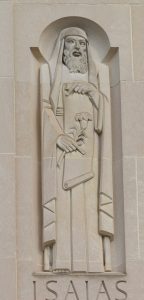
See, I am creating new heavens
and a new earth;
The former things shall not be remembered
nor come to mind…
I will rejoice in Jerusalem
and exult in my people.
No longer shall the sound of weeping be heard there,
or the sound of crying…
They shall not toil in vain,
nor beget children for sudden destruction;
For they shall be a people blessed by the Lord
and their descendants with them.
Before they call, I will answer;
while they are yet speaking, I will hear.
The wolf and the lamb shall pasture together,
and the lion shall eat hay like the ox—
but the serpent’s food shall be dust.
None shall harm or destroy
on all my holy mountain, says the Lord.
(Isaiah 65:17, 19, 23-25)

